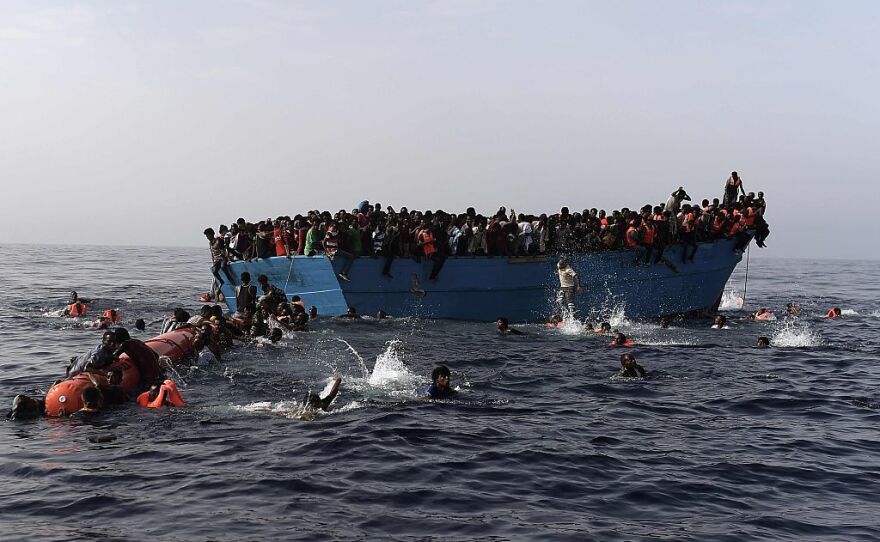
2016 is set to be the deadliest year on record for deaths of refugees and migrants crossing the Mediterranean Sea, amid the world's biggest refugee crisis since World War II.
It's "the worst we've ever seen" even though far fewer people are attempting the dangerous crossing than last year, as William Spindler, spokesman for the U.N.'s refugee agency, told reporters. "Last year at least 1,015,078 people made the crossing. This year so far, crossings stand at 327,800," he said.
However, he says "3,740 lives have been lost so far in 2016, just short of the 3,771 reported for the whole of 2015." And there are more than two months to go.
The likelihood of death while making the journey has dramatically increased, Spindler says: "From one death for every 269 arrivals, last year, in 2016 the likelihood of death has spiraled to one in 88. On the Central Mediterranean route between Libya and Italy the likelihood of dying is even higher, at one death for every 47 arrivals."
Many factors contributed to the rising fatalities, according to Spindler. "People smugglers are today often using lower-quality vessels – flimsy inflatable rafts that often do not last the journey," he says. "Several incidents seem to be connected with travel during bad weather."
Changing tactics by smugglers are also to blame, Spindler says, "with several occasions where there have been mass embarkations of thousands of people at a time." He adds that "this may be to do with the shifting smuggler business model or geared towards lowering detection risks, but it also makes the work of rescuers harder."
These mass embarkations, Spindler says, mean the emergency workers "need to rescue several thousand people on several hundred boats," according to the BBC.
Finally, a higher proportion of the crossings this year were from North Africa to Italy, "a known perilous route," he says. While the total number of people making the crossing over that route has stayed approximately constant, according to the International Organization for Migration, the number crossing the sea to Greece has dramatically decreased in the same period after the EU and Turkey struck a controversial deal earlier the year aim at stemming the flow of migrants.
Meanwhile, rescue workers are overwhelmed. Yesterday, the Italian coast guard saved 2,200 people during recover efforts involving 21 different rescue missions, according to The Associated Press. It also "recovered the bodies of 16 people."
As the U.N. concludes, "significantly expanding the availability of regular pathways for refugees to reach safety needs much greater and urgent attention."
Copyright 2016 NPR. To see more, visit http://www.npr.org/.






